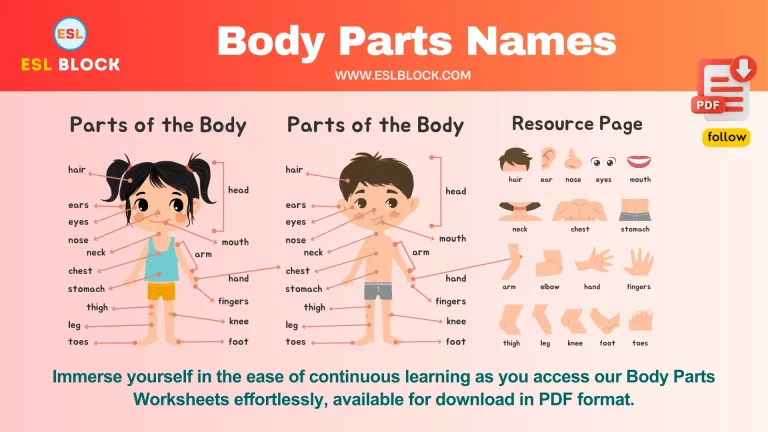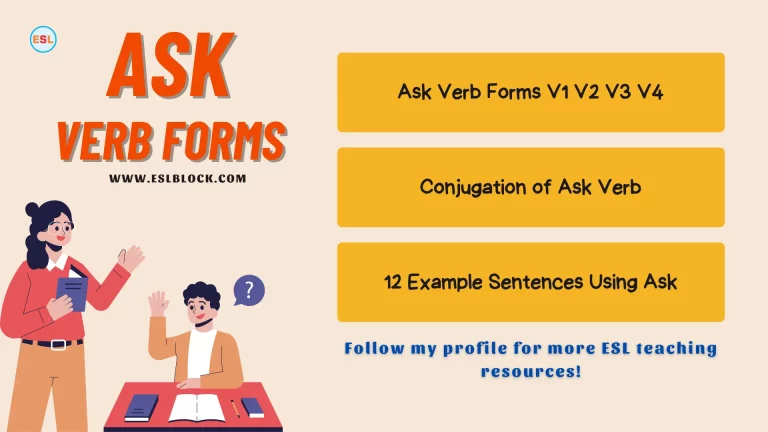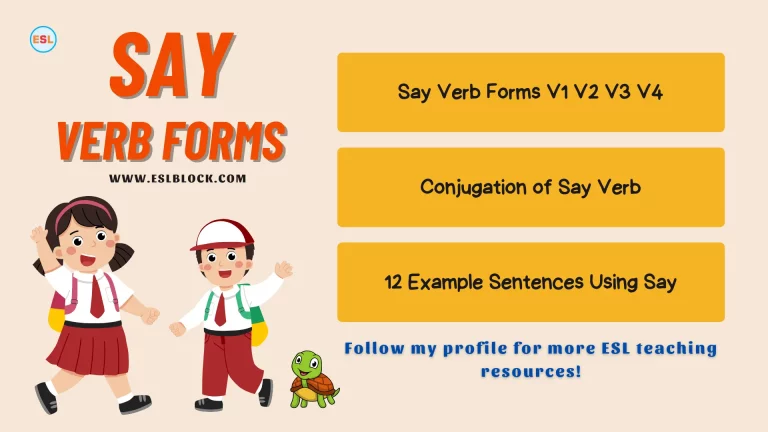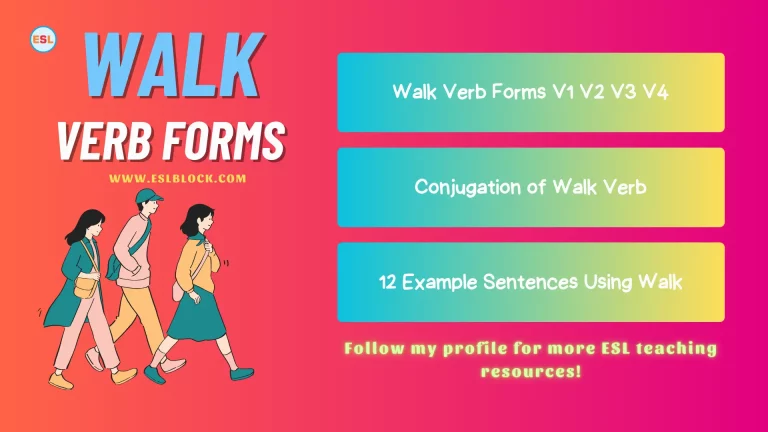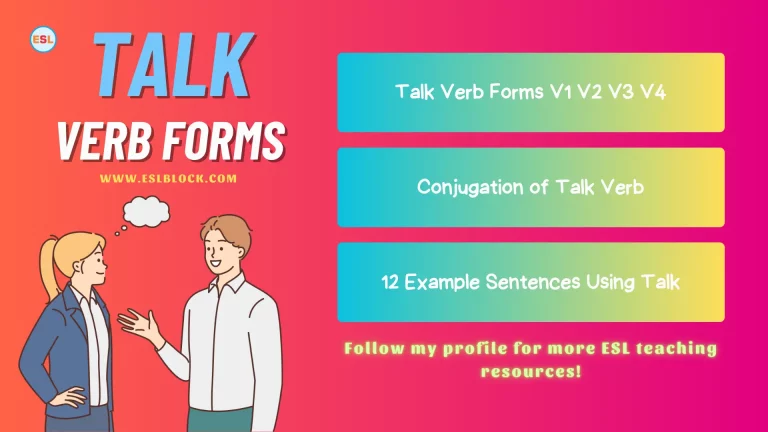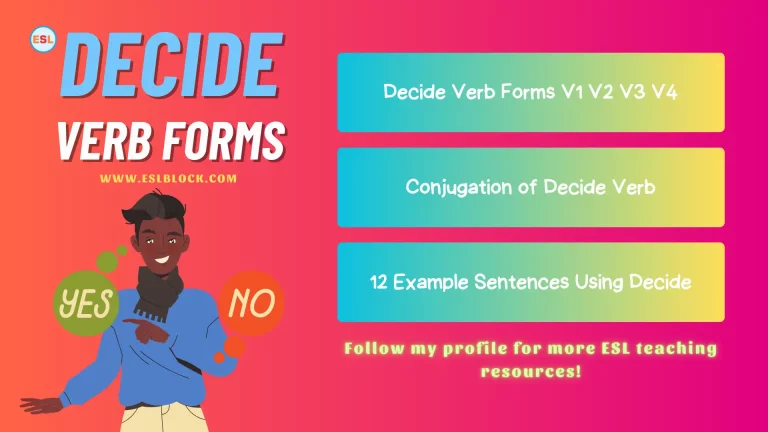Types of Adverbs with Example Sentences

In this article, I am going to explain Types of Adverbs with Example Sentences. An adverb is one of the nine parts of speech. The other eight are pronouns, interjections, verbs, adjectives, nouns, articles, conjunctions, and prepositions. Adverbs are words that modify the sense of a verb or an adjective or another adjectival adverb, or a whole phrase. You may perform an adverbs quiz for more understanding.
Also read: What is an Adverb in English Grammar?
Types of Adverbs
There are many types of adverbs that have different meanings. Adverbs tell us how, where, when, how much, and frequency. Thus, types of adverbs are classified based on their function. There are ten main types of adverbs.
- Adverb of Frequency
- Adverb of Manner
- Adverb of Time
- Adverb of Place
- Adverb of Degree
- Adverb of Certainty
- Adverbs of Attitude
- Adverbs of Judgement
- Conjunctive Adverb
- Adverbs of Speed
- Adverbs of Duration
1. Adverb of Frequency
Adverbs of Frequency tell the rate at which something is accomplished. Following are the most famous frequency adverbs.
- again
- almost always
- almost never
- always
- Annually
- constantly
- Daily
- Eventually
- Ever
- every
- frequently
- generally
- hardly ever
- Hourly
- infrequently
- Monthly
- nearly always
- Never
- Next
- Nightly
- normally
- Now
- now and then
- occasionally
- often
- once in a while
- periodically
- Quarterly
- rarely
- regularly
- scarcely ever
- seldom
- sometimes
- Soon
- Then
- Today
- Tonight
- usually
- Weekly
- Yearly
- Yesterday
- Yet
Adverbs of Frequency Example Sentences:
- She attends the Friday service regularly.
- William comes to the park every day.
- Sophia often practices piano.
- They rarely eat dinner together.
- I never sleep before 10 pm.
2. Adverb of Manner
Adverbs of manner mainly modify verbs and tell us the way in which something occurs. Following are the most famous manner adverbs.
- Accidentally
- Accidently
- Adamantly
- Adorably
- angrily
- anxiously
- Astonishingly
- awkwardly
- badly
- beautifully
- blindly
- boldly
- bravely
- brightly
- busily
- calmly
- carefully
- carelessly
- cautiously
- cheerfully
- clearly
- closely
- correctly
- courageously
- Covertly
- Cowardly
- cruelly
- Cunningly
- daringly
- Deceitfully
- deliberately
- doubtfully
- eagerly
- easily
- elegantly
- enormously
- enthusiastically
- equally
- eventually
- exactly
- faithfully
- fast
- fatally
- fiercely
- fondly
- foolishly
- Formally
- fortunately
- frankly
- Franky
- frantically
- Frivolously
- generously
- gently
- gladly
- Goofily
- gracefully
- greedily
- happily
- hard
- hastily
- healthily
- honestly
- hungrily
- hurriedly
- Implicitly
- inadequately
- Inappropriately
- Incorrectly
- Indirectly
- Inevitably
- Informally
- ingeniously
- innocently
- inquisitively
- Intellectually
- Intelligently
- Intentionally
- Interestingly
- irritably
- Jadedly
- Jovially
- Joyfully
- joyously
- Jubilantly
- justly
- kindly
- Lamely
- lazily
- loosely
- loudly
- madly
- Magically
- Mercilessly
- Metaphorically
- Meticulously
- Mightily
- Miserably
- Modestly
- mortally
- mysteriously
- Mysteriously
- neatly
- nervously
- noisily
- obediently
- openly
- painfully
- Passionately
- patiently
- Peacefully
- perfectly
- Pleasantly
- politely
- poorly
- Positively
- powerfully
- Precisely
- Professionally
- promptly
- Properly
- punctually
- Quakingly
- Queerly
- quickly
- quietly
- rapidly
- rarely
- Rationally
- really
- recklessly
- Regretfully
- regularly
- Relentlessly
- reluctantly
- repeatedly
- Respectfully
- rightfully
- roughly
- rudely
- sadly
- safely
- selfishly
- sensibly
- Separately
- seriously
- sharply
- shyly
- silently
- sleepily
- slowly
- smoothly
- so
- softly
- solemnly
- speedily
- Steadily
- stealthily
- sternly
- straight
- stupidly
- successfully
- suddenly
- suspiciously
- swiftly
- Tearfully
- Tediously
- tenderly
- tensely
- Terribly
- thoughtfully
- tightly
- truthfully
- Unaffectedly
- Unaggressively
- Unbiasedly
- Uncleverly
- unexpectedly
- Vaguely
- Veraciously
- victoriously
- violently
- Virtually
- vivaciously
- warmly
- weakly
- wearily
- well
- Whimsically
- Whole-Heartedly
- wildly
- wisely
- Wrathfully
- Xenophobically
- Yawningly
- Zealously
- Zestfully
Adverbs of Manner Example Sentences:
- We handled the job enthusiastically.
- Isabella often does three things simultaneously.
- Benjamin walked quickly across the plaza.
- Mia played her guitar loudly every night.
- As soon as the bell rang, Emma went immediately to the gate.
- Charlotte was singing with a lot of passion.
- James talks to people in a low voice.
- Ava sings like a professional singer.
3. Adverb of Time
Adverbs of time modify verbs and inform us when something occurs. Following are the most famous time adverbs.
- already
- always
- annually
- before
- constantly
- daily
- earlier
- early
- eventually
- ever
- finally
- first
- formerly
- fortnightly
- frequently
- generally
- hourly
- infrequently
- just
- last
- late
- lately
- later
- monthly
- never
- next
- nightly
- normally
- now
- occasionally
- often
- previously
- quarterly
- rarely
- recently
- regularly
- seldom
- since
- sometimes
- soon
- still
- then
- today
- tomorrow
- tonight
- usually
- weekly
- yearly
- yesterday
- yet
Adverbs of Time Example Sentences:
- Chang lives in New York now.
- Sophia will visit tomorrow.
- We responded immediately.
- I clean my teeth daily.
- William was going to school yesterday.
4. Adverb of Place
Adverbs of Place inform about the location where the verb’s action occurs. Following are the most famous place adverbs.
- Abroad
- Across
- Ahead
- Anywhere
- Back
- Backwards
- below
- Beyond
- Down
- downstairs
- Downwards
- Eastwards
- elsewhere
- Everywhere
- forward
- Here
- home
- In
- Indoors
- Inside
- nearby
- northwards
- nowhere
- out
- Outside
- Overseas
- someplace
- southwards
- There
- upstairs
- West
- Yonder
Adverbs of Place Example Sentences:
- The apples are grown locally.
- Isabella spent a more significant part of her life working there.
- He took the box upstairs.
- The owner of the bar told them to take their argument outside.
- The snake is here.
- The girls are there.
5. Adverb of Degree
An adverb of degree offers the intensity or the degree to which another word (adverb or adjective) uses. Following are the most famous degree adverbs.
- absolutely
- almost
- awfully
- badly
- barely
- completely
- decidedly
- deeply
- enormously
- enough
- entirely
- extremely
- fairly
- far
- fully
- greatly
- hardly
- highly
- how
- incredibly
- indeed
- intensely
- just
- least
- less
- little
- lots
- most
- much
- nearly
- perfectly
- positively
- practically
- pretty
- purely
- quite
- rather
- really
- scarcely
- simply
- so
- somewhat
- strongly
- terribly
- thoroughly
- too
- totally
- utterly
- very
- virtually
- well
Adverbs of Degree Example Sentences:
- She is often wandering the streets.
- He never tells a lie.
- Isabella is generally late.
- It is very fine today.
- Benjamin is bold enough to face the boss.
- The baby was gazing adoringly at the chocolate ice cream.
- The director briefly examined the new project.
- Mia reads only suspense books.
- Amelia runs much slower than I.
6. Adverb of Certainty
Adverbs of certainty predict how sure we feel about an action. Here are some common examples of adverbs of certainly.
- certainly
- clearly
- definitely
- maybe
- probably
- surely
- undoubtedly
- apparently
- doubtfully
- doubtlessly
- obviously
- presumably
Adverbs of Certainty Example Sentences:
- Charlotte definitely left the office this evening.
- He is probably in the office.
- Elijah has certainly forgotten the meeting.
- He will probably go to the office tomorrow.
- Surely you’ve got a bicycle?
- I think Benjamin will surely be there at the right place.
- Nowadays, I’m also exhausted; I surely need a break.
- I return very tiredly after going to the office, so I surely need to sleep today.
7. Adverbs of Attitude
Adverbs of attitude express the speaker’s attitude towards an action. Following are the most famous attitude adverbs.
- Apparently
- Unfortunately
- Obviously
- Frankly
- Honestly
- surprisingly
- fortunately
- hopefully
- simply
Adverbs of Attitude Example Sentences:
- Honestly, I don’t think she will win the race.
- Frankly, Emma feels tired, so she doesn’t want to come with him.
- Fortunately, Amelia and William had escaped.
- The side effects of the injection hopefully were weak.
- She simply didn’t want to make it happen.
- They were surprisingly glad to see her at the wedding ceremony.
8. Adverbs of Judgement
Adverbs of judgment modify the words to justify or judge the sense of the action. Following are the most famous judgment adverbs.
- bravely
- carelessly
- fairly
- foolishly
- generously
- kindly
- rightly
- spitefully
- stupidly
- unfairly
- wisely
- wrongly
Adverbs of Judgment Example Sentences:
- Olivia kindly lent me her camera.
- The upper is very generously cut.
- I carelessly broke the jug.
- I stupidly left my purse at the office.
- You carelessly dropped your phone.
- Sophia bravely traveled across India alone.
9. Conjunctive Adverb
Conjunctive adverbs connect two independent clauses or complete sentences. Following are the most famous conjugative adverbs.
- accordingly
- additionally
- again
- all in all
- also
- anyway
- besides
- certainly
- comparatively
- consequently
- conversely
- elsewhere
- equally
- finally
- for example
- for instance
- further
- furthermore
- however
- in addition
- in conclusion
- incidentally
- indeed
- lately
- likewise
- meanwhile
- moreover
- namely
- nevertheless
- next
- nonetheless
- otherwise
- rather
- regardless
- so
- still
- that is
- then
- therefore
- thus
- undoubtedly
- yet
Conjugative Adverbs Example Sentences:
- My dad loves cats. However, she is allergic to them.
- It would help if you did your test; otherwise, you might get a bad grade.
- I won’t be going to the cinema; therefore, I have an extra ticket.
- We broke up years ago. Still, I have feelings for Oliver.
- Isabella practiced the piano; meanwhile, her sister went out with her friends.
10. Adverbs of Speed
Describing how fast an item move is a great way to change a verb! Use these adverbs when you’re considering the speed of a verb. Following are the most famous speed adverbs.
- briskly
- casually
- expeditiously
- fleetingly
- gradually
- haltingly
- hastily
- hurriedly
- immediately
- instantly
- languidly
- lazily
- leisurely
- promptly
- quickly
- rapidly
- slowly
- speedily
- swiftly
- tediously
11. Adverbs of Duration
Adverbs of duration inform us of how long something lasts. Following are the most famous duration adverbs.
- a long time
- all day long
- all night
- briefly
- briefly
- for a minute
- for a while = awhile
- for ages
- forever
- momentarily
- permanently
- temporarily
Adverbs of Duration Example Sentences:
- Sophia hasn’t seen Amelia for ages.
- William and Sophia rode their horses all day.
- We were briefly occupied.
- The juicer was temporarily out of order.
- You came here last night.
- She still lives in New York.
- He will be forever grateful.
- Mia was already in the office.
Types of Adverbs Exercise
These exercises will help you understand the types of adverbs. To complete each sentence, choose the best answer.
- ________ The monster’s got him!
- The tortoise walks very ________.
- Her bike crashed ________.
- Olivia ________ bunks her classes.
- This matter is ________ severe.
- This window opens ________.
- Emma likes to go shopping ________.
- The exhibition is ________ finished.
- Liam has been ________ injured in an accident.
- She is talking very ________.
- The metro is ________ on time.
- He lost her train ________ a couple of seconds ago.
- Noah completes his assignment ________.
- Charlotte speaks ________ with the dignitaries.
- This is a delicate material; handle it ________.
- The Chemistry teacher ________ ends the syllabus.
- The house is ________ designed for the kids.
- An aeroplane is flying ________ the clouds.
- The horse runs ________ fast than the donkey.
- Oliver wants to eat ________ chocolates than his friend.
- Elijah was caught eating his tiffin ________ the classes.
Answer Key:
- The tortoise walks very slowly.
- Her bike crashed severely.
- Olivia never bunks her classes.
- This matter is quite severe.
- This window opens frequently.
- Emma likes to go shopping occasionally.
- The exhibition is almost finished.
- Liam has been seriously injured in an accident.
- She is talking very gently.
- The metro is generally on time.
- He lost her train just a couple of seconds ago.
- Noah completes his assignment quickly.
- Charlotte speaks sweetly with the dignitaries.
- This is a delicate material; handle it carefully.
- The Chemistry teacher fastly ends the syllabus.
- The house is simply designed for the kids.
- An aeroplane is flying above the clouds.
- The horse runs too fast than the donkey.
- Oliver wants to eat more chocolates than his friend.
- Elijah was caught eating his tiffin during the classes.
Types of Adverbs InfoGraphics
Here are some printable infographics about Types of Adverbs with Example Sentences. Printable infographics are a fantastic way to share a significant amount of details in a short time in a stunning way. The Types of Adverbs with examples of infographics can help teachers and students to share their thoughts easily.

My Considerations
With this set of Types of Adverbs with Example Sentences, you will quickly determine whether you are making the most effective use of the Types of Adverbs and how they could be used to enhance English writing skills.
Since the types of adverbs are the main part of English Grammar, the importance of developing English learning skills cannot be undervalued without types of adverbs with examples.
You can read the above sample sentences about Types of Adverbs with Example Sentences to improve your understanding of English grammar.
Encourage your children to learn these basic but common rules for using adverbs with example sentences, by following the simple example sentences given above. Then, save this list of Types of Adverbs, handy for your kids in the future.
If you enjoyed a printable infographic about Types of Adverbs with Example Sentences, I’d be very thankful if you’d help it spread by emailing it to your friends or sharing it on Pinterest, Reddit, Twitter, Instagram, or Facebook. Thank you!
Also read: Adjectives That Start With Y
Recap of what we just learned
- Types of Adverbs with Example Sentences
- Types of Adverbs
- Adverb of Frequency
- Adverb of Manner
- Adverb of Time
- Adverb of Place
- Adverb of Degree
- Adverb of Certainty
- Adverbs of Attitude
- Adverbs of Judgement
- Conjunctive Adverb
- Adverbs of Speed
- Adverbs of Duration
- Types of Adverbs Exercises
- Answer for Types of Adverbs Exercise
- Types of Adverbs InfoGraphics
- Types of Adverbs Quiz
With ESLBLOCK, you will not face problems studying new ideas. If you are in doubt, about the qualities of blog posts about Types of Adverbs, reach us through our blog’s comment section. Keep checking back! We’ll attempt to give you feedback as early as possible. Thank you!
Also read: Adjectives That Start With Z
Types of Adverbs Quiz
Related Topics
Explore the full list of Adjectives to Describe a Person from A to Z!
- A Adjectives to Describe a Person
- B Adjectives to Describe a Person
- C Adjectives to Describe a Person
- D Adjectives to Describe a Person
- E Adjectives to Describe a Person
- F Adjectives to Describe a Person
- G Adjectives to Describe a Person
- H Adjectives to Describe a Person
- I Adjectives to Describe a Person
- J Adjectives to Describe a Person
- K Adjectives to Describe a Person
- L Adjectives to Describe a Person
- M Adjectives to Describe a Person
- N Adjectives to Describe a Person
- O Adjectives to Describe a Person
- P Adjectives to Describe a Person
- Q Adjectives to Describe a Person
- R Adjectives to Describe a Person
- S Adjectives to Describe a Person
- T Adjectives to Describe a Person
- U Adjectives to Describe a Person
- V Adjectives to Describe a Person
- W Adjectives to Describe a Person
- X Adjectives to Describe a Person
- Y Adjectives to Describe a Person
- Z Adjectives to Describe a Person


